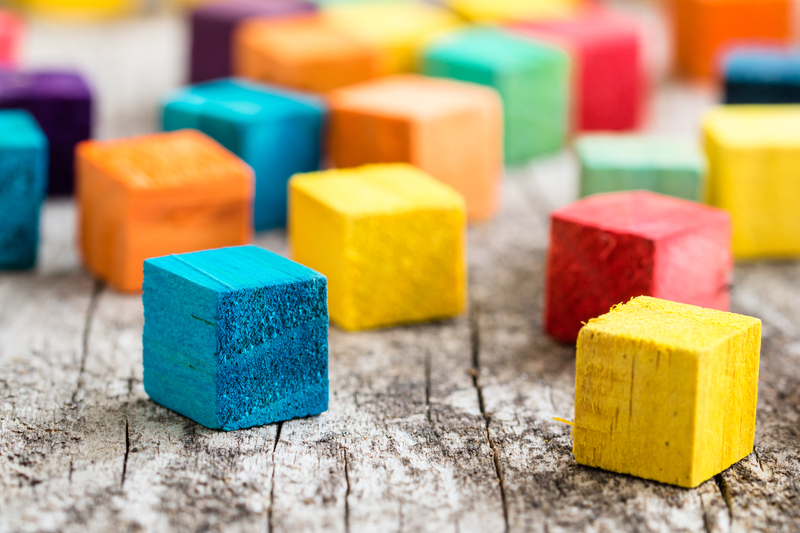Kids and Recycling: A Step Toward Sustainability
Empowering the next generation to embrace sustainability starts with understanding the basics of recycling. Engaging kids in recycling helps nurture environmentally conscious habits and significantly contributes to building a greener future.
Why Kids and Recycling Matter
Recycling for kids is about much more than simply placing waste in the right bin. It's a crucial introduction to the broader concept of sustainability and environmental preservation. Early education on waste management teaches children the value of caring for the planet and sets the stage for responsible behavior throughout their lives.
- Children are influencers: Kids often inspire families and communities to adopt greener habits.
- Formation of positive habits: Early recycling habits often carry into adulthood.
- Educational benefits: Recycling exposes kids to science, civic responsibility, and global citizenship.

The Basics: What is Recycling?
Recycling is the process of collecting and reprocessing waste materials into new products. This activity helps reduce the use of raw materials, lessens energy consumption, and minimizes landfill waste. For children, understanding these concepts is the first step toward sustainable living.
Common Recyclable Materials
- Paper and cardboard
- Plastic containers (check for numbers 1-7)
- Glass bottles and jars
- Metal cans (aluminum and steel)
- Electronics (with parental supervision)
The Importance of Teaching Kids About Sustainability
Teaching children about recycling and sustainable living instills a sense of environmental stewardship. When kids learn about the impact of their actions, they become more likely to think about resource conservation, energy use, and waste reduction as they grow.
- Eco-friendly learning: Integrating sustainability into education prepares kids for future environmental challenges.
- Positive environmental impact: Recycling reduces pollution, conserves resources, and supports ecosystem health.
- Social responsibility: Kids who recycle learn to be proactive members of their communities.
How to Start Recycling with Kids
Make Recycling Fun and Engaging
Kids learn best through hands-on activities and play. Turning recycling into a fun project makes it more memorable. Here are a few ideas to get started:
- Create colorful recycling bins: Let kids decorate bins according to what goes inside (paper, plastic, metal, etc.).
- Recycling scavenger hunt: Challenge children to find recyclable materials throughout the home or classroom.
- Recycled crafts: Use old containers or cardboard to create art projects or toys.
Teach Sorting Skills
Understanding what materials can and cannot be recycled is vital. Use images and simple explanations to help kids distinguish different materials. For example, explain the difference between numbered plastics using real-life objects or packaging.
- Hold quick sorting races with friends or classmates.
- Show the recycling symbols on products and explain their meaning.
Set an Example at Home and School
Children are keen observers and often mimic adult behavior. Make recycling a visible, everyday action in your home and encourage schools to implement sustainable recycling practices for kids.
Educational Resources and Activities for Kids
There are plenty of creative ways to integrate recycling into education. Schools, families, and communities can use these resources to reinforce the principles of sustainability:
- Interactive games: Many apps and online games teach kids about recycling and sorting waste properly.
- Books and videos: Stories about recycling engage children's imaginations and highlight positive role models.
- Field trips: Visits to recycling centers or landfills illustrate the journey of waste and materials firsthand.
Classroom Recycling Programs
Schools play a crucial role in cultivating sustainability in children. Initiatives like recycling drives and eco-clubs help students practice environmentally friendly habits together.
- Recycling competitions: Reward classes or grades that collect the most recyclable materials.
- Project-based learning: Assign research, posters, or presentations on recycling facts for kids.
The Environmental Impact of Kids' Recycling Efforts
Every item recycled by children counts toward a healthier planet. Let's look at how these small actions make a big difference:
- Reduced landfill waste: Recycling keeps trash out of overflowing landfills, decreasing pollution and habitat destruction.
- Conservation of natural resources: Using recycled materials means fewer trees are cut down and less mining is needed for metals.
- Lower energy use: Manufacturing from recycled goods typically requires less energy than using raw materials.
- Cleaner air and water: Recycling minimizes the harmful emissions and runoff associated with waste disposal and resource extraction.
Fun Environmental Facts to Share With Kids
- Did you know? Recycling one aluminum can saves enough energy to run a TV for three hours!
- Every ton of recycled paper saves 17 trees and more than 7,000 gallons of water.
- Plastic bottles can be recycled into clothing, park benches, and even playground equipment.
Challenges and Solutions in Kids' Recycling Education
Despite its many benefits, teaching children about recycling and sustainability can present obstacles:
- Confusing recycling rules: Guidelines can vary by city or country, making it hard for kids to know what's recyclable.
- Lack of resources: Not all schools or families have easy access to recycling facilities.
- Motivation: Kids may lose interest unless recycling is made relevant and enjoyable.
Solutions:
- Simplify messaging: Use clear labels and visual aids.
- Provide hands-on opportunities: Organize community cleanups or recycling crafts.
- Show real-world impact: Share stories of how recycling effects positive change in the environment.
Recycling Beyond the Bin: Sustainable Habits for Kids
Recycling for children goes hand in hand with other sustainable practices. Teach kids about:
- Reducing: Use less paper, avoid single-use plastics, and buy products with minimal packaging.
- Reusing: Find new uses for jars, containers, and clothing.
- Composting: Turn kitchen scraps and yard waste into nutrient-rich soil for gardens.
By promoting these actions alongside recycling, we foster a holistic mindset toward sustainability for kids.
Encourage Community Engagement
Involving children in neighborhood or school sustainability initiatives amplifies the message and impact of recycling. Consider:
- Organizing a litter pickup day or school-wide recycling challenge.
- Partnering with local businesses to support recycling efforts.
- Hosting educational workshops or guest speakers about environmental protection.
The Role of Parents, Teachers, and Communities
Adults play a vital part in guiding children toward environmental responsibility. By modeling sustainable behaviors and providing opportunities to participate, parents and educators help solidify the connection between recycling and a cleaner world.
- At home: Set up a designated recycling station and explain why certain items belong there.
- In school: Incorporate lessons about environmental science, conservation, and waste management into the curriculum.
- In the community: Participate in or create green initiatives that involve children of all ages.
Recycling for Kids: Safety Tips
While recycling is fun and educational, safety should always come first:
- Always supervise younger children during recycling activities.
- Teach kids not to handle sharp objects, broken glass, or hazardous materials.
- Wash hands thoroughly after handling recyclable materials.
- Properly clean and rinse containers to avoid attracting pests or bacteria.

Measuring Progress and Celebrating Achievements
Encourage kids to track their recycling progress and celebrate milestones. Visual trackers, like charts or sticker boards, can help children see the impact of their efforts. Recognizing achievements--no matter how small--instills pride and motivation to continue eco-friendly habits.
Conclusion: Creating a Generation of Eco-Conscious Kids
Teaching kids about recycling and sustainability is one of the most impactful steps we can take toward a cleaner, healthier planet. By making recycling relatable, engaging, and accessible, adults empower children to develop lifelong environmental values. Every act of recycling for kids, whether at home, in school, or throughout the community, is a step toward a sustainable future.
Let's foster a world where children naturally choose to reduce, reuse, and recycle--paving the way for a brighter, greener tomorrow.
```


